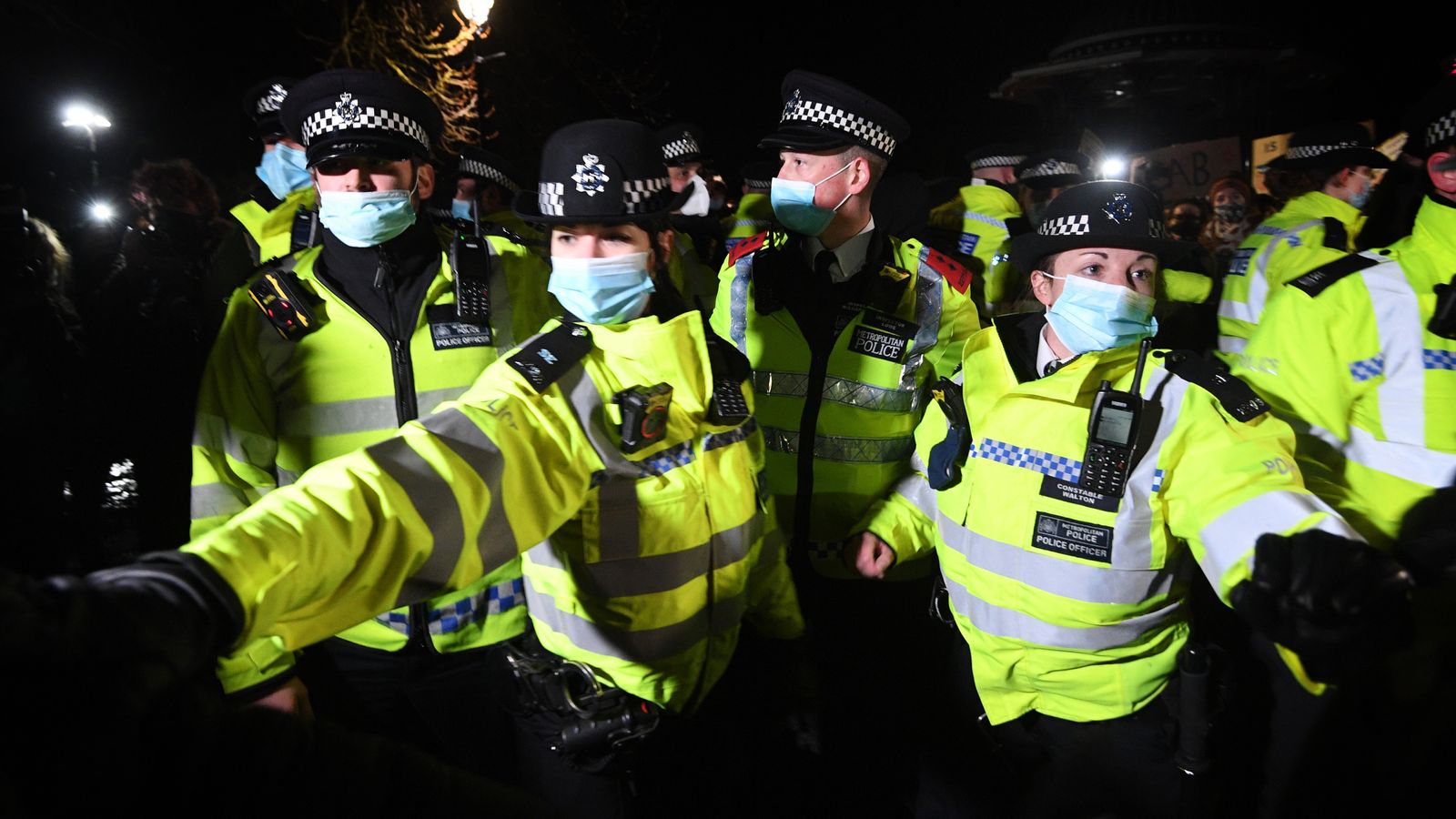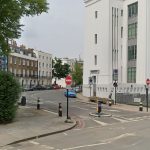By any measure, Saturday night’s scenes on Clapham Common make for deeply uncomfortable viewing.
For the Metropolitan Police, in particular the senior command team at Scotland Yard, the optics are terrible.
Assistant Commissioner Helen Ball said that officers were left with no choice but to intervene as hundreds of people were packed together in an area around the main band stand, posing an obvious health risk.
Please use Chrome browser for a more accessible video player
But in truth, commanders on the ground did have a choice. They could have stood back and maintained a more discreet presence.
Of course there are many who will say that you can’t have one rule for one group when it comes to breaking lockdown restrictions and then turn a blind eye to another.
The more robust policing around recent anti-lockdown protests in which hundreds of arrests were made is a case in point.
But the situation on Clapham Common was different. This was never intended to be a defiant protest, rather a respectful vigil, where the organisers said they would take whatever action the police deemed appropriate to ensure people could be socially distanced.
However, Reclaim These Streets, the group behind the original vigil plans said repeated attempts to negotiate a compromise solution with Scotland Yard were turned down.
Although Reclaim These Streets cancelled the official vigil, it was inevitable that others would still turn out.
In fact, the vacuum left by the inability of the Met to reach an agreement with the organisers for a smaller vigil, was filled by some groups intent on a more defiant approach.
Assistant Commissioner Ball said that officers faced abuse, with a small minority chanting, pushing and throwing items.
But I can’t help thinking that had the Met reached a more workable compromise for a smaller, more socially distanced vigil, there would have been less chance of more confrontational elements heading to Clapham Common.
But even with some more hostile people in the crowd, senior officers still had a choice, they could have stepped back.
Last June, Scotland Yard took the decision to facilitate Black Lives Matter protests in London and across the country.
Gatherings of more than six people were banned at the time because of the COVID restrictions. But the Met decided not to intervene because of the very sensitive nature of the protest.
Indeed, groups of officers even took a knee in solidarity with those marching.
No one can surely argue that the vigil on Clapham Common last night, with all the events of recent days, wasn’t a highly sensitive event as well.
Please use Chrome browser for a more accessible video player
Contrast the decisions made around Clapham Common with those made by Police Scotland in Glasgow last week.
Police did not intervene to arrest the hundreds of Rangers supporters celebrating their team’s league title win.
Instead, they allowed the crowd to celebrate and disperse. Intervening would undoubtedly have escalated that situation.
One former officer, with years of public order policing, told me: “The Met will need to be very careful about policing events in the next few days.
“Sometimes doing nothing is the best tactical option in the circumstances.
“If you are going to intervene for public safety then any intervention should not cause disorder and confrontation to escalate.”
The Met’s commissioner, Cressida Dick, is now under intense pressure to explain her officers’ actions, with some even calling for her resignation.
Her job security is far from assured, given a notable intervention by the home secretary last night.
Far from expressing confidence in Dame Cressida, Priti Patel described some of the scenes playing out on social media as “upsetting” and demanded a full report from her.
Cressida Dick has lost the confidence of the millions of women in London and should resign.
The scenes this evening of the policing of the Clapham Common vigil in memory of Sarah Everard are utterly disgraceful and shame the Metropolitan Police. pic.twitter.com/ObXOm41s7W
Coupled with severe criticism from the London mayor, Labour and Lib Dem leaders, as well as many other politicians, this will be a very difficult few days ahead for Cressida Dick.
But a word of caution for those calling for her head. Is the cause of female empowerment best served by the sacking of the Met’s first female commissioner?






















